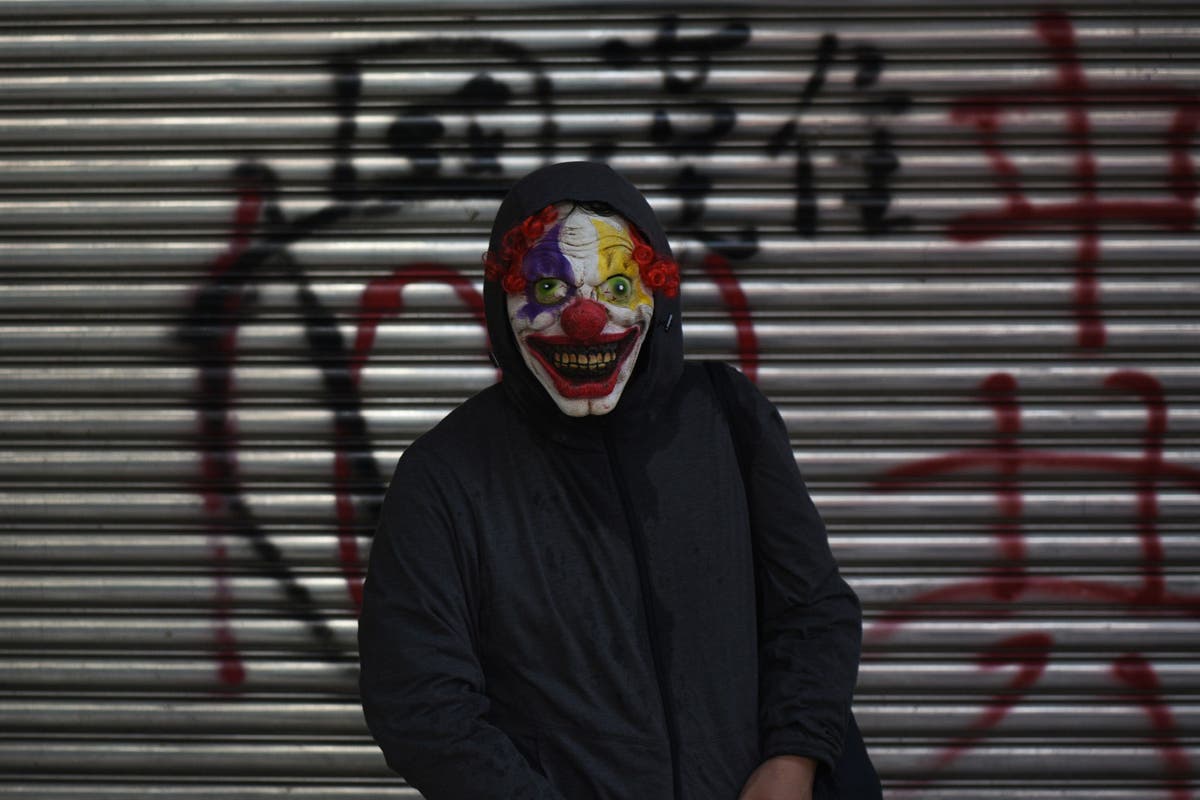
A new study about the fear of clowns aims to reveal why people are scared of the performers whose entire purpose is to make their audience laugh.
The fear of clowns, or coulrophobia, is something that has been widely reported in both adults and children across several cultures.
In the new research, published recently in the journal Frontiers in Psychology, scientists from the University of South Wales assessed data from an international survey of nearly 1,000 adult participants from 64 countries and found that more than half of the respondents reported having some degree of coulrophobia.
About 5 per cent of the respondents said they were “extremely afraid” of clowns – a number reportedly higher than that for other phobias like heights, animals, or closed spaces.
Exaggerated facial features of clowns and makeup hiding emotional signals are the main reasons people fear them, according to the study. Another reason cited was the negative portrayals of clowns in popular culture, like that of the character of Pennywisein Stephen King’s It.
Another factor that attracted one the highest ratings among survey respondents was the alleged unpredictable behaviour of clowns.
Researchers pointed out that the lowest level of agreement among participants was fear stemming from a frightening personal experience with clowns.
Scientists suspect it may not be any of the individual elements that may be frightening itself, “but rather the juxtaposition of these features”.
They said the “uncanny valley effect” – due to clowns not appearing entirely like humans in appearance – compounded by makeup that completely covers the skin may be some of factors that play out in combination to induce fear among people.
Researchers also suspect the redness on the makeup, “reminiscent of disease and contagion”, could play a part in striking fear among adults and children.
“These factors can combine to give a clown an appearance of deformity, to which (sadly, but nevertheless unavoidably) humans have a natural reaction of revulsion and fear,” they wrote and called for future research to provide a stronger test of these hypotheses.
They said research assessing participants and measuring their subsequent reactions as they viewed clown images as well as varying makeup and hair colours on them could offer fresh insights on the phobia.
Citing some limitations of the study, researchers said while about 54 per cent of the participants self reported having some degree of fear of clowns, the study did not assess whether the respondents would meet the diagnostic criteria for a specific phobia.
Scientists said future research should consider other factors associated with “co-occurring mental health conditions”.
In future studies, researchers also hoped to unravel if people with their faces painted as animals tend to induce the same kind of fear or if the clown makeups particularly have fear-inducing properties.
“In conclusion, this study is the first to investigate the aetiology of clown fear and to consider competing explanations of the origins of this phenomena,” they added.
For all the latest Science News Click Here
For the latest news and updates, follow us on Google News.

